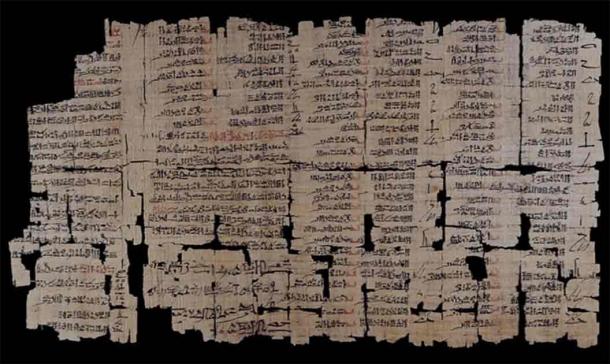Day 5 of #RPGaDay is Ancient. This triggered thoughts I had about fictional ancient history and cults/religions vs reality. So often in stories and TTRPGs the history of an ancient sect, deity, etc is recorded in books or scrolls or tablets. These are then preserved and kept safe to be handed down and taught over long periods of time whether secret or otherwise. It makes for clear information and continuation of knowledge. Or, if not handed down, then is discovered intact and translated. As anyone with an interest in history, archival work, hell even genealogy knows – that is not how any of this works.
Dark Ages
History isn’t history for those who live it. People who record what is happening in the world and time they live in will omit what they feel is common knowledge or something they thinks has already been covered by others and is easily accessible. This, over long periods of time, can cause problems because that common knowledge or other records are lost. It is a worry many of us have in today’s time because we live in what is called a Digital Dark Age. Very few people are keeping written records or physical pictures anymore. They rely on the memory of their phone, computer, or the internet. However, as we in the US have seen in real time with government websites – the internet isn’t actually forever. Things can be lost.
Any time a culture doesn’t value or emphasize preservation of information and art, things are lost. This often happens in times of great conflict or transitions of power. We all mourn the Library of Alexandria, I know. Then there are times when information is directly attacked – the Nazis raided and destroyed the Institute for Sexual Science because they didn’t want information about sexuality and gender available. These are only two examples of huge resources of information lost to us.
Modern Texts aren’t Necessarily Whole Cloth
One of the books that is most widely known and referred to in religion, law, culture, etc is the Christian Bible. Many treat it as if it is the Word of God in whole. However, the bible, especially the New Testament, was put together by politicians from other manuscripts written long after the people in it had died. Its hear-say, oral folklore, and more pasted together with political agendas. What we can glean from it about history and culture is through the lens of political victors who had already oppressed the very peoples the bible talks about. This of course flavors the information passed on. Therefore any information used from it must be looked at through this lens or else is twisted at best and completely wrong at worst.
Then there is the trouble of interpretation. As language changes, translations are made (even within the same language using modernized versions) the message of the original text can be lost. Scholars of the Old Testament understand that much of it is poetry and allegory. However, those who read it literally must not only be careful of reading poetry literally but translations of it – which translation? Why? Who translated it and what was their agenda in choosing one word over the other. In the King James Version he says Thou Shall Not Suffer a Witch to Live. However, the word witch comes from a term that is better translated as Poisoner. The choice of Witch is a political one of the time and yet…we have literalists who scream this verse at witches and pagans all the time.
Lets drop the bible talk for a moment and see how this looks in other artefacts and manuscripts. Things are often found in fragments. Sometimes, Archeologists are able to find untouched pieces but more often than not their finds are desiccated by time or harmed by grave robbers looking for treasure. Pieces are bought and sold and smuggled – looking at you Hobby Lobby – and this can cause damage as well. Then, again, there is the issue of translation.
A more modern example of this is when I worked in the archives of a college. My job was digitizing letters and documents that were either handwritten (usually in cursive) or typed up on old typewriters (often with bad typeset). There were times when four of us would pass around a document, squint at it, and try and decipher the handwriting. These were letters and documents from the late 1800s on through the 1970s. Hardly ancient texts but even they had issues with decay and decipherability. Imagine then how hard it is the more and more time has passed.
So the idea of information being passed down through the ages unbroken and whole and easily understood by following generations is…laughable.
What does this have to do with TTRPGs?
When writing ancient lore and religions/cults – keep in mind that the people that you are creating or playing might not know the full information. Things get destroyed in whole or part, translated wrong, or are pieced together in scraps by people with their own agenda. This creates interesting points of conflict that we should embrace in our world building and game play rather than ignore for clean and whole cloth artefacts and lore.
Let your world have Ancient Alien racists and Bible thumping literalists for the players to contend with. Let them face technology or gods that they thought they understood but turns out where way off base. Lets make this shit interesting.



